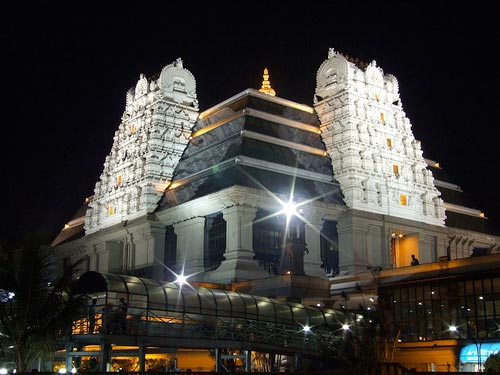Bangalore Splinter Group Wins Court Case
By ISKCON News Services | Apr 20, 2009

Bangalore, INDIA – In the latest development in the longstanding feud between the International Society for Krishna Consciousness (ISKCON) and a breakaway group of devotees who took over the prominent ISKCON temple here, a City Civil Court issued a ruling in favor of the splinter group on Friday, April 17. The decision seems to be a blow to ISKCON and its leadership in India, although sources close to ISKCON leadership in India indicate that the organization plans to appeal the decision.
Members of the Bangalore-based breakaway group left ISKCON in 1998, when they adopted the philosophy that ISKCON Founder-Acharya A.C. Bhaktivedanta Swami Prabhupada, who passed away in 1977, would continue to be the sole initiating guru even after his physical departure. This doctrine, informally known as ritvikism because adherents claim that the individual conducting the initiation be regarded only as a ritual priest, or ritvik, is regarded as a heresy in traditional Vaishnava praxis. It is also strictly at odds with ISKCON’s position that Prabhupada instructed his disciples to themselves become gurus after his disappearance and thus continue the disciplic succession in the conventional manner.
In 1990, ISKCON’s Governing Body Commission (GBC) ruled that ritvikism was “a dangerous philosophical deviation” and prohibited its teaching and practices in ISKCON. In 1999, following Bangalore temple president Madhu Pandit Dasa’s high profile defection and his presentation of ritvikism to the GBC, that body examined his argument and found it “to be erroneous in its conclusion as well as specious and sophistical in its conduct.” As a result, the GBC strongly reaffirmed its repudiation of ritvikism as a dangerous deviation, and specified that “no one who espouses, teaches supports in any way, or practices ritvikism can be a member in good standing of ISKCON.”
The GBC rulings also singled out Madhu Pandit, along with a handful of other Indian leaders who had defected to the ritvik camp, noting that in “openly deviating from fundamental tenets of the Society’s teaching” they were “deemed as unfit to be members of ISKCON India.”
In response to the sharp repudiation, Madhu Pandit acted quickly, filing multiple legal suits against ISKCON in a bold and explicit takeover attempt of the prestigious ISKCON Bangalore temple and related assets. Ownership of the temple has been in dispute since then, with Friday’s ruling being the culmination of nine years of the lawsuits slowly winding their way through India’s backlogged court system.
Interestingly, as ISKCON Newsweekly reported, in March Madhu Pandit had sent a letter to ISKCON’s leadership proposing that the two camps settle their disagreements – ostensibly including the multiple lawsuits he filed against ISKCON in India – by adopting a compromise situation within which their divergent views can be accommodated. It is unclear, however, how Friday’s ruling will bear on the state of that truce proposal.














